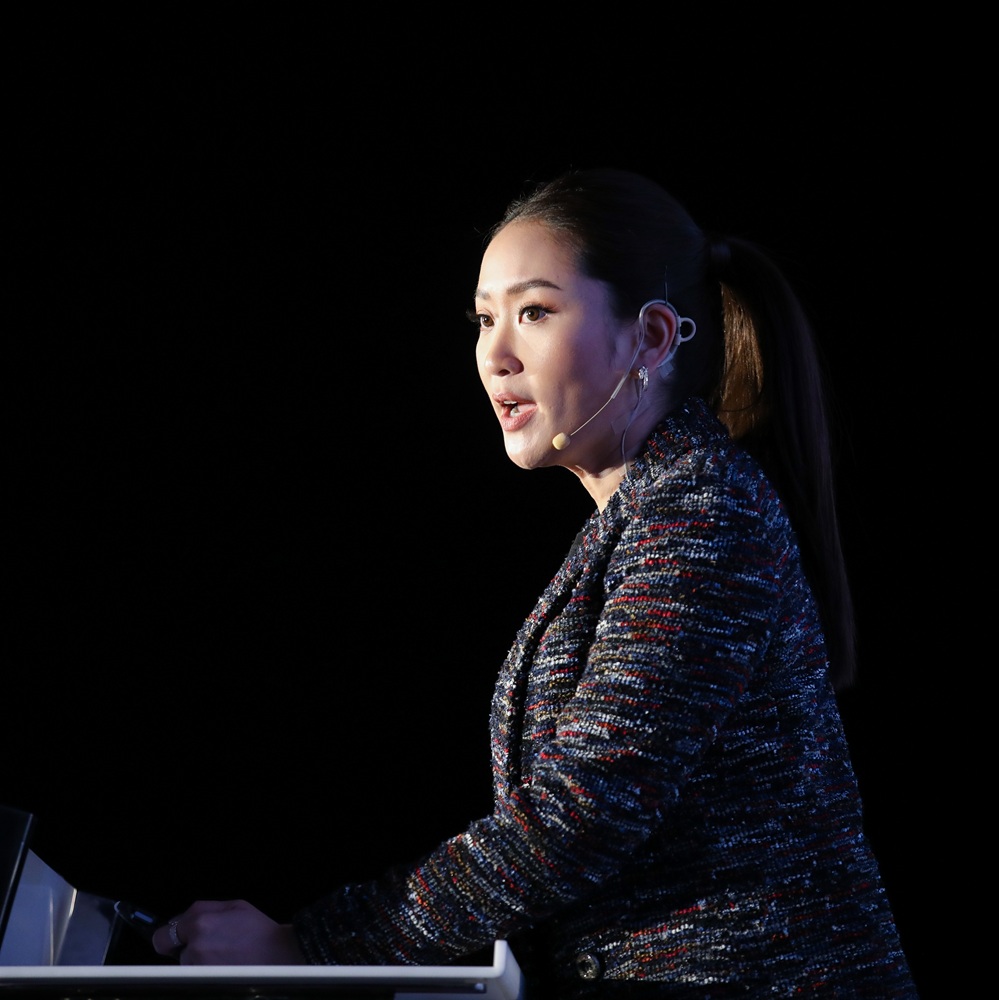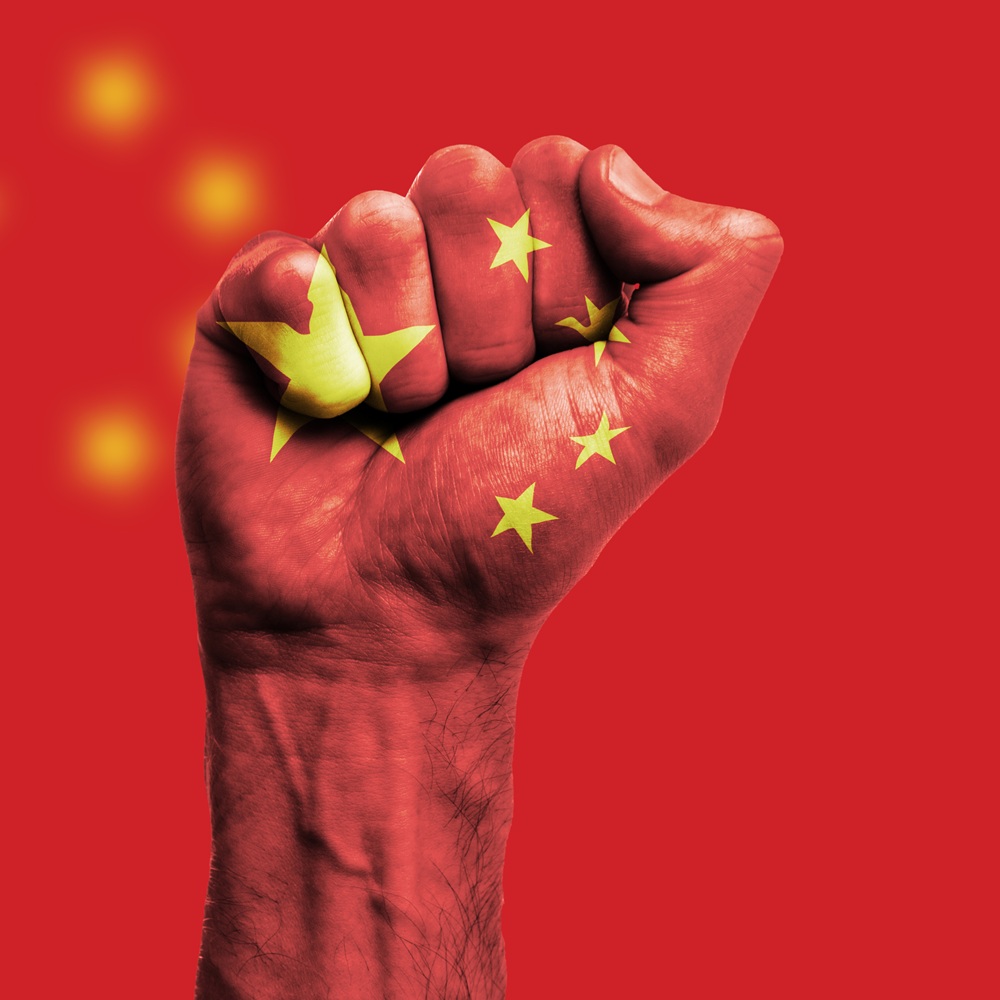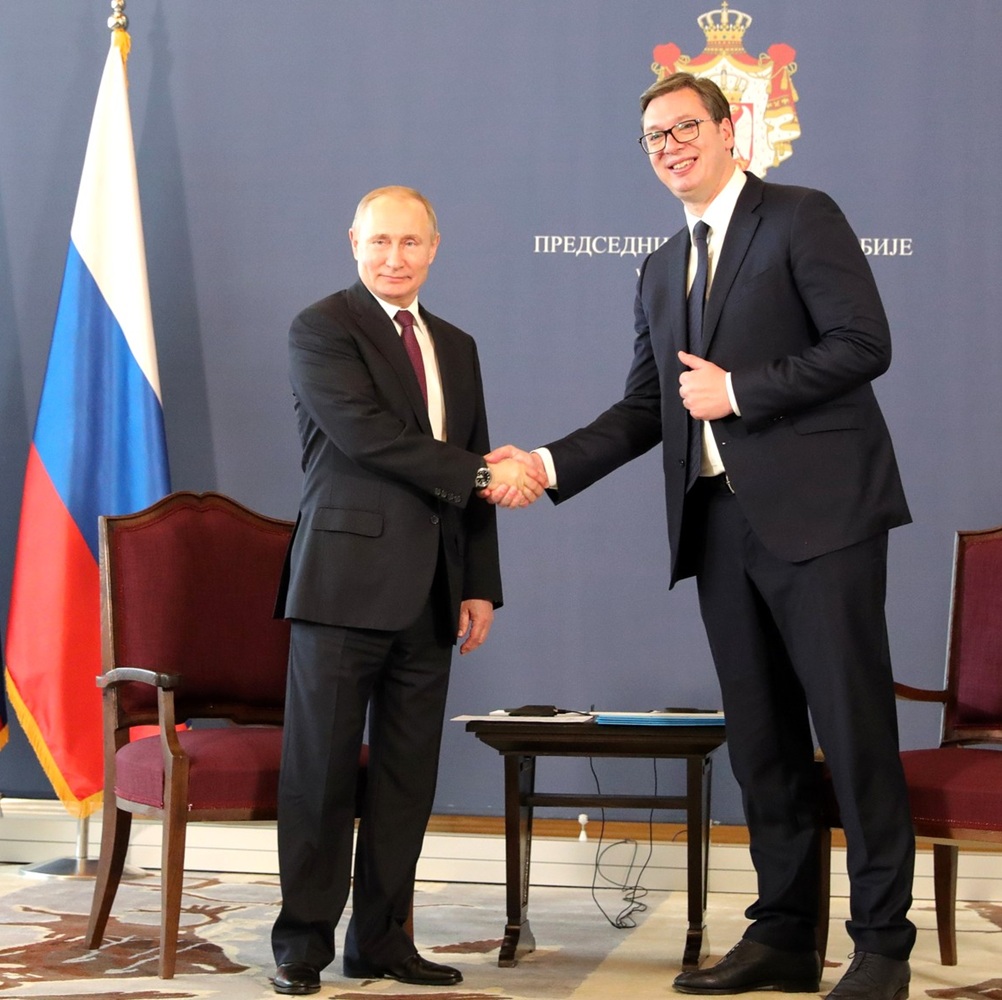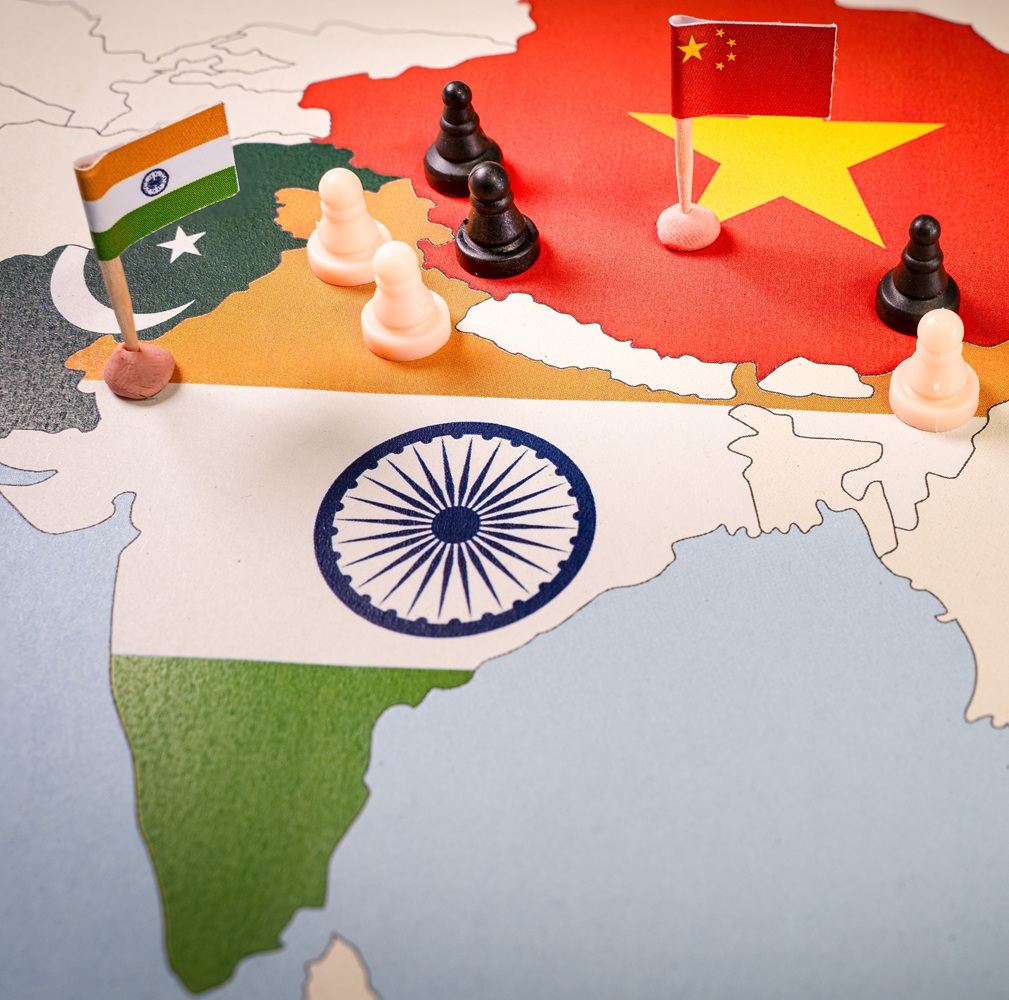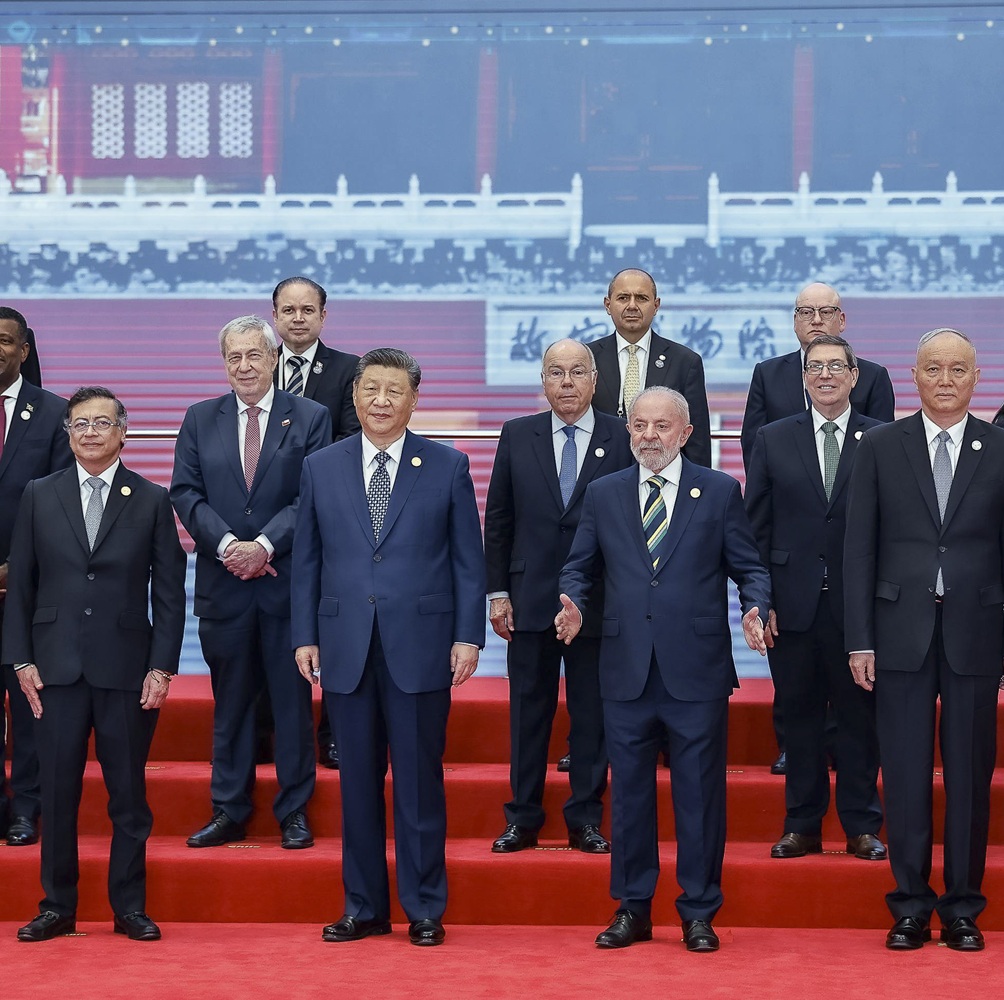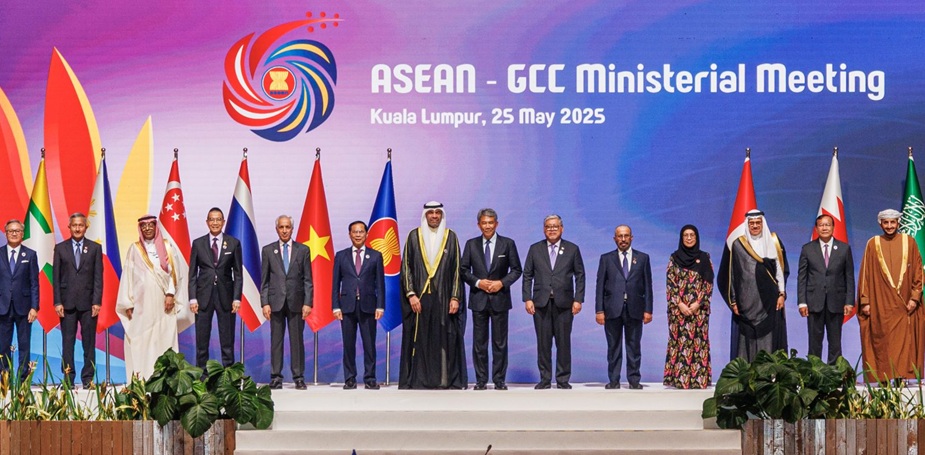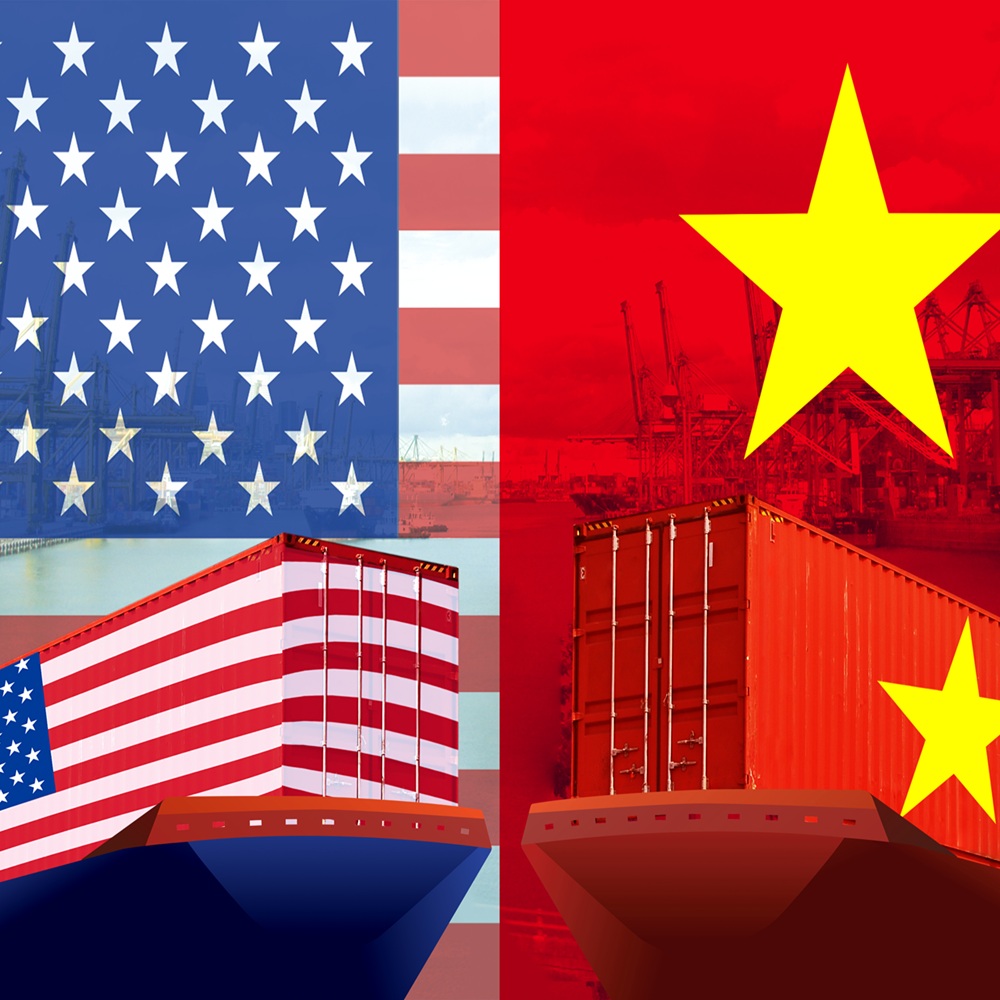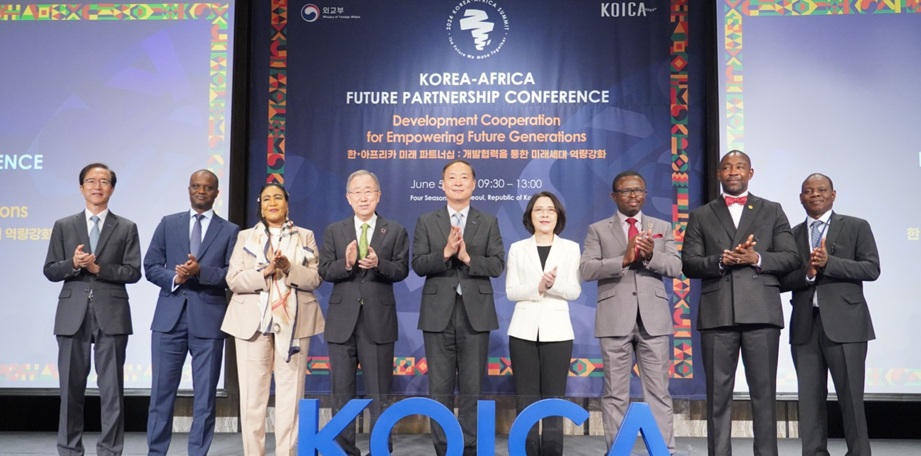Proxy Wars and Silent Partners: The Pahalgam Attack a Stress Test for India–China Stability
by Dr. Jagannath Panda , Eerishika Pankaj
한국어로 읽기
Leer en español
In Deutsch lesen
Gap
اقرأ بالعربية
Lire en français
Читать на русском
This paper was earlier published as Issue & Policy Briefs on May, 16th 2025 on the Website of The Institute for Security & Developement Policy. The April 2025 Pahalgam terrorist attack marks a significant moment in South Asia’s evolving security matrix. While the India–Pakistan binary continues to dominate discourse, China’s ambiguous posture following India’s Operation Sindoor warrants deeper scrutiny. This issue brief assesses Beijing’s silence, the implications for China-India ties, and China’s alignment with Pakistan’s strategic calculus. Drawing on past crises like Pulwama, Balakot, and Uri, it interrogates China’s selective neutrality, its shielding of Pakistan, and the erosion of its credibility as a regional stabilizer. By weaving in Chinese media narratives and official statements, the analysis critically evaluates whether Beijing is prepared—or even interested—in playing a constructive role in South Asian stability. The brief concludes that unless India recalibrates its strategic assumptions and narrative posture, China will continue to manipulate the region’s instability through plausible deniability and transactional diplomacy. The terrorist attack in Pahalgam on April 22, 2025,1 which killed 25 Indians and 1 Nepali and injured dozens more, is the latest chapter in South Asia’s long-running saga of cross-border militancy. Yet it would be a mistake to frame it solely within the India–Pakistan binary. As India launched Operation Sindoor in response— targeting terrorist infrastructure across the Line of Control (LoC)—the silence and subsequent posture of China signaled deeper tremors in the broader regional architecture. Kashmir has long served as a crucible of IndiaPakistan hostility, but the Pahalgam attack— attributed to the Pakistan-backed group The Resistance Front (TRF),2 which is a front for the UN-proscribed Pakistani terrorist group, Lashkar-e-Taiba—has unfolded in a regional context far more complex than previous crises. India’s swift military response via Operation Sindoor, while reminiscent of the 2019 Balakot precedent, came in a more layered geopolitical moment, where any Indian action reverberates beyond Islamabad to Beijing. Despite issuing a generic statement of terming India’s Operation Sindoor “regrettable,”3 Beijing offered no commentary on the Pakistan-backed terror attack itself. By sidestepping the central provocation—the targeting of Indian civilians by a known Pakistani terror outfit—China has raised fundamental questions about the strategic calculus guiding its relations with both Islamabad and New Delhi. New Delhi’s official narrative continued to underscore its commitment post Operation Sindoor to “commitment to non-escalation, provided it is respected by the Pakistan military”.4 However, during May 8-9, Pakistan responded with a drone offensive targeting Indian military sites,5 prompting countermeasures. By May 10, Pakistan had a name for its retaliatory escalation: Operation Bunyan Marsoos,6 which came to an abrupt halt when a ceasefire was agreed upon between India and Pakistan later in the day.7 Despite ceasefire violations by Pakistan in the immediate aftermath of the announcement, the agreement seems to be holding currently. Yet what stood out amid this tit-for-tat dynamic was China’s conspicuous silence and strategic responses. Post Pakistan’s escalation on May 9, the topic of India-Pakistan conflict was completely absent from the pre-approved questions of the regular press briefing by the Chinese Ministry.8 Even in response to the news of the ceasefire, China’s statement has been guarded, stating it hopes India and Pakistan will “consolidate and extend” the same.9 As China distances itself from India’s narrative but attempts to show semblances of neutrality, it raises doubts over the credibility of Sino-Indian normalization. While the two countries may engage in tactical military disengagements along the Line of Actual Control (LAC), the Pahalgam episode demonstrates that deep strategic distrust remains. India’s engagement with counterterrorism in the region has often required it to navigate a diplomatic minefield, particularly when the international community does not uniformly support its security concerns. The post-Balakot moment saw similar divisions, with China refusing to back India’s actions at multilateral fora while amplifying Pakistan’s grievances. Such flashpoints, unpacked later in this brief, underscore a consistent Chinese pattern—a trend that has deepened in the aftermath of Pahalgam. What differentiates this latest incident, however, is the broader geopolitical backdrop. The Pahalgam incident hence emerges as a compelling prism through which to examine the strategic entanglements involving China in South Asian geopolitics. China’s posture following Operation Sindoor calls to question its regional credibility10 and the future of the still recovering India-China bilateral post the 2020 Galwan clash. In essence, the Pahalgam incident is a microcosm through which to assess whether Beijing is capable of playing a stabilizing role in South Asia or if it remains tethered to old geopolitical loyalties that undermine its normative credibility.11 China’s Calculated Ambiguity and Strategic Hedging At first glance, China’s reaction to the Pahalgam attack appeared predictably neutral,12 reiterating a standard line against terrorism in all forms albeit without naming Pakistan-based groups, which then evolved into calling for an “impartial probe” into the attack.13 Beijing’s ambiguous position is hardly new. It has long shielded Pakistan from international pressure on terrorism-related matters. In 2023, for instance, China blocked a UN Security Council listing of Sajid Mir—a Lashkar-e-Taiba commander with ties to the 26/11 Mumbai attacks.14 Such acts are not isolated; they are part of a broader calculus in which Pakistan is Beijing’s irreplaceable partner in South Asia. This alignment is driven by both geopolitical and geo-economic considerations. Pakistan is China’s all-weather partner (全天候伙伴关系 or quántiānhòu huǒbàn guānxì),15 crucial not just for counterbalancing India but also for securing the western front of the Belt and Road Initiative (BRI), the China–Pakistan Economic Corridor (CPEC). CPEC is a flagship component of BRI and runs through an unstable Gilgit-Baltistan and, despite India’s vehement opposition, Pakistan-occupied Kashmir (PoK). Stability in these zones is key to China’s western frontier strategy, giving it a vested interest in maintaining the status quo—even if that includes cross-border terrorism targeting India. Further compounding the issue is the unspoken quid pro quo between Beijing and Islamabad: Pakistan remains silent on China’s domestic repression of Uyghurs,16 while China refrains from condemning Pakistani-linked Islamist militant groups. This transactional compact allows both states to shield each other on their respective internal and external security issues, forming a mutually reinforcing axis of silence. In times of crisis, this axis manifests through diplomatic choreography. For example, during the Galwan Valley clashes in 2020, Pakistan was among the few countries to openly17 support China’s position, even as the rest of the world urged de-escalation.18 Conversely, during moments of India-Pakistan tension, Beijing reliably leans toward a neutral but structurally pro-Pakistan position. During the 2016 Uri attack, Beijing maintained a studied silence while subtly encouraging bilateral restraint. In 2019, when India moved to revoke Article 370 granting Jammu and Kashmir’s special status, China supported Pakistan’s “legitimate rights and interests” in Kashmir.19 Furthermore, post the 2019 Pulwama attack, China refused to list Pakistan-based Jaish-e-Mohammad chief as a global terrorist under UNSC Resolution 1267.20 This narrative strategy appears to serve a dual function: first, to construct a regional imaginary in which India is framed as a destabilizing actor across multiple contested peripheries; and second, to subtly align with Pakistan’s security perceptions without overt endorsement as seen during Balakot as well with Chinese state media closely relaying Pakistan’s perspectives.21 Such framing enables Beijing to reinforce an adversarial posture vis-à-vis India while maintaining formal neutrality. More critically, it delegitimizes India’s counterterrorism imperatives by projecting them as part of a broader pattern of assertiveness rather than as legitimate responses to asymmetric threats. The aftermath of Pahalgam has reinforced this pattern. Structural Limits of Sino-Indian Normalization –and the idea of China as a stabilizer Although India and China have made some progress in military disengagement following the 2020 Galwan Valley clash and the October 2024 border agreement, the Pahalgam episode reveals the limitations of this tactical thaw. China’s refusal to acknowledge Pakistani provocations— or even address the cross-border violence in its Operation Sindoor press briefings—shows that Beijing’s strategic alignment with Pakistan remains intact. This persistent ambiguity damages the credibility of any “reset” in India-China relations. It also underscores a recurring pattern in Chinese state discourse, where India’s actions across both the LoC and Line of Actual Control (LAC) are presented as signs of regional destabilization.22 The result is a rhetorical sleight of hand: India’s counterterrorism efforts are rebranded as adventurism, while China claims neutrality. India for its part has walked a delicate line on China’s own internal security policies.23 India’s cautious approach is also seen on the Uyghur issue, where it has stopped short of criticizing China. India’s intent is to prevent further escalation with China, particularly amid the tensions along the Himalayan border.24 Ironically, this caution has earned India neither Chinese neutrality on Pakistan-sponsored terrorism nor any softening of China’s positions on Kashmir. India must prepare for the possibility of a more overt China-Pakistan strategic alignment in the Himalayan theatre—as seen briefly with the short-lived Himalayan Quad.25 A major point of pride in Chinese social media and state-media news circulating currently is the alleged downing of Indian aircrafts, “three Rafale f ighter jets, one MIG-29 fighter aircraft, one Su30 fighter jet, and one Heron drone”26 by the Pakistani air force. India has not confirmed these losses. China has emerged as Pakistan’s principal defense partner, supplying approximately 81 percent of its arms imports between 2020 and 2024.27 This strategic partnership was evident during the recent military exchanges with India, where Pakistan deployed Chinese-made J-10C f ighter jets and PL-15 air-to-air missiles.28 The J-10C, a 4.5-generation aircraft equipped with advanced avionics and radar systems, played a pivotal role in Pakistan’s aerial defense, which the Chinese social media is celebrating in disc. China’s support extends to artillery systems, such as the SH-15 155mm truck-mounted howitzer, and advanced radar installations along the LoC.29 China’s participation in February 2025 in Pakistan’s multinational naval exercise AMAN further consolidates the partnership’s expansion into the Indian Ocean.30 This deepening military collaboration underscores China’s commitment to bolstering Pakistan’s defense capabilities, thereby influencing the strategic balance in South Asia. Concurrently, on May 9, as Pakistan responded to Operation Sindoor,31 China conducted a live-fire military exercise in Tibet involving truck-mounted artillery and long-range rockets. Although conducted within Chinese territory, the exercise’s temporal proximity to the crisis raised red flags within Indian security circles. Of particular concern was increased PLA logistical activity along the G219 highway—an artery critical for mobilization across Tibet and Xinjiang. Such maneuvers are not incidental; rather, they reflect deliberate strategic signaling. Given the history of the China-India border standoff from April 2020 to October 2024, this latest development underscores Beijing’s continued use of military exercises as coercive diplomacy (胁迫性外交 xiébò xìng wàijiāo). The drill’s timing suggests that the People’s Republic of China (PRC) is not merely observing the India-Pakistan escalation, but actively inserting pressure on India’s northern front to exploit its two-front dilemma. At the same time, China’s approach to international order is selective. It supports rules when they are advantageous and obstructs them when they threaten. This raises an important question for policymakers: can Beijing ever be a partner in building a rule-based regional order when its strategic habits are so conditional? The Pahalgam silence is not simply an oversight; it reflects a broader unwillingness by China to apply consistent normative standards when its interests are at stake. India, therefore, faces not just a tactical silence, but a strategic contradiction—one that complicates regional security architecture. This difference also further highlights China’s inability to be a stabilizing regional actor or mediator—a niche it is building for itself in West Asia—in South Asia owing to its national interest driven biased approach to regional conflicts.32 China increasingly brands itself as a mediator in global hotspots—from IranSaudi rapprochement to ceasefire proposals in Ukraine. Yet in South Asia, this “stabilizer” identity appears performative. Its refusal to challenge Pakistan undercuts its credibility as a neutral actor. The narrative of “community of shared future” (人类命运共同体 rénlèi mìngyùn gòngtóngtǐ) rings hollow when Beijing prioritizes geopolitical returns over regional peace. In this regard, it is also critical to note that India’s claim to great power status hinges not only on its material capabilities but also on its willingness to shape global norms on terrorism. To do so, a post-Pahalgam India may need to deepen its engagement with global norm entrepreneurs—from middle powers in Europe and Asia to civil society actors and multilateral institutions. Additionally, it must better leverage its leadership in forums like the G20 and BRICS to reframe regional security debates. If China wishes to be seen as a responsible stakeholder, it must be challenged to behave like one. In forums like the Shanghai Cooperation Organisation (SCO), which have been focused on regional non-traditional security, China’s bias becomes more evident—obstructing Indian efforts to spotlight Pakistan’s terror links33 while promoting counterterrorism cooperation that suits its agenda.34 The SCO’s regional antiterrorism structure (RATS) has increasingly focused on threats aligned with Beijing’s internal definitions, particularly extremism related to Xinjiang, while sidelining India’s concerns about transnational Islamist militancy based in Pakistan. However, Beijing’s notion of “Asia for Asians” appears hypocritical when it shelters Pakistan but obstructs regional counterterrorism consensus—especially in RATS under the SCO umbrella. Beyond multilateral diplomacy, China’s reluctance to endorse Indian perspectives has extended to informal channels. While India and Pakistan engage in kinetic and symbolic war over territory and identity, China operates in the background as both facilitator and firewall for Pakistan. Backchannel discussions have repeatedly seen Chinese interlocutors urge restraint on both India and Pakistan—without distinguishing between a state defending its civilians and one enabling non-state actors. This false equivalence erodes India’s trust and limits the scope for genuine regional cooperation. From Response to Strategy: How Should India Read into Beijing’s Silence? India’s recent history is littered with crises where tactical victories often came at the cost of longterm ambiguity. In the aftermath of the 1999 Kargil War, for instance, India successfully reestablished control over its territory but failed to push for international accountability on Pakistan.35 Similarly, the 2017 Doklam standoff with China ended with a disengagement, but left the broader strategic questions unresolved. Even the 2020 Galwan clashes, despite their tragic costs, did not lead to sustained support or narrative building. What unites these episodes is a recurring pattern: India seeks resolution through calibrated responses while both adversaries exploit the absence of sustained international pressure. The Pahalgam attack threatens to repeat that pattern unless India broadens the strategic scope of its response—not merely in military terms but in diplomatic signaling, normative positioning, and alliance formation. India’s challenge is not just the asymmetry of violence with Pakistan—it is the asymmetry of narrative and support in multilateral spaces. Despite India’s restraint on Chinese internal matters, such as its silence on Xinjiang in UN forums, China has shown no reciprocal flexibility on Kashmir or Pakistan-based terrorism. This lack of strategic reciprocity is widening the gap between tactical cooperation and strategic mistrust. It also casts doubt on China’s repeated offers to play the role of a regional stabilizer. Beijing is unlikely to act as an honest broker in India-Pakistan disputes because it is structurally invested in Pakistan’s strategic and territorial claims, especially those in Kashmir. Moreover, the geo-economic dimension complicates the landscape further. China’s massive infrastructure projects through Pakistan-administered territories give it a direct stake in the political and security status quo in Kashmir. Any Indian attempt to assert sovereignty over the entire region threatens not just Pakistan’s territorial claims but China’s physical investments. It is for this reason that Chinese diplomats have avoided endorsing even moderate Indian positions on Kashmir. Even in backchannel diplomacy, Chinese officials urge restraint from both sides but refrain from applying pressure on Pakistan to dismantle terrorist networks—a selective neutrality that undermines India’s trust in Beijing’s intentions. Going forward, Indian policymakers may consider more assertive linkages between China’s Kashmir positions and India’s stance on Tibet and Xinjiang. While such rhetorical escalation risks deepening the rift, it may serve as a deterrent to Beijing’s selective neutrality. More broadly, India must prepare for a strategic environment in which a China–Pakistan alignment in the Himalayas becomes less tactical and more entrenched. If China continues to describe Jammu & Kashmir as “disputed territory,” Indian policymakers may feel justified in elevating the discourse on Chinese internal colonialism in places like Tibet and Xinjiang.36 While such a shift would risk further alienation, it could also serve as a deterrent against China’s one-sided narratives in multilateral spaces. Forecasting China’s future position on Jammu and Kashmir suggests continuity rather than change. As long as CPEC remains central to China’s regional vision, Beijing will oppose any Indian attempt to alter the territorial status quo in ways that threaten Pakistan’s legal or strategic control over its administered areas. Even if the Pahalgam incident spurs limited backchannel diplomacy, it is unlikely to alter China’s fundamental incentives in the region. The question, then, is whether the Pahalgam attack has merely revealed existing patterns in China’s South Asia policy or whether it marks a turning point. In one sense, it reaffirms an uncomfortable reality: Beijing’s anti-terrorism policy is primarily inward-looking and defined by the logic of state sovereignty, not regional peacebuilding. Terrorism that originates in Xinjiang is treated as an existential threat to the Chinese state, meriting mass surveillance, reeducation camps, and transnational intelligence cooperation. But terrorism that originates in Pakistan and targets India is diplomatically bracketed, treated as either a bilateral problem between New Delhi and Islamabad or, more insidiously, as a counterweight to Indian assertiveness. In the wake of Pahalgam, Indian policymakers face a difficult but necessary recalibration. While India has long pursued strategic autonomy, this doctrine cannot translate into strategic silence in the face of double standards. New Delhi must continue to assert its case in global forums— not only in terms of territorial integrity but also normative consistency. A longer-term Indian strategy may also involve diversifying its diplomatic partnerships in ways that offset Chinese influence. This includes expanding cooperation with regional and extra-regional actors who share India’s concerns about crossborder terrorism and authoritarian influence in multilateral institutions. The elevation of minilateral forums such as the Quad and closer coordination with Europe and Southeast Asian partners could enable India to construct new coalitions that constrain Chinese room for maneuverability as Beijing’s current incentives give it little reason to alter course. As long as CPEC remains a geostrategic and economic priority, and Pakistan serves as both a buffer and a partner, China will continue to downplay Islamabad’s transgressions. Any backchannel diplomacy following Pahalgam is unlikely to produce meaningful rebalancing unless India reshapes the cost-benefit calculations driving China’s current South Asia posture. The Pahalgam terrorist attack is not merely an India-Pakistan crisis. It is a regional flashpoint that pulls China out of the shadows and into the foreground of South Asian security dynamics. Beijing’s silence—strategic, deliberate, and revealing—shows that China is not yet ready to play the role of a stabilizing power in the region. Instead, it continues to hedge its bets, uphold transactional alliances, and avoid normative positions on terrorism that might alienate Pakistan. For India, the path forward involves more than military preparedness. It demands a recalibration of strategic assumptions about China’s role in regional crises. The Pahalgam attack may not shift China’s behavior immediately, but it sharpens the contours of a regional order where Beijing is less bystander and more stakeholder— one whose interests often run counter to India’s pursuit of stability and security. In this landscape, India must think beyond Pakistan and confront the deeper structural dynamics of the Pakistan-China bonhomie. About ISDP The Institute for Security and Development Policy is a Stockholm-based independent and non-profit research and policy institute. The Institute is dedicated to expanding understanding of international affairs, particularly the interrelationship between the issue areas of conflict, security and development. The Institute’s primary areas of geographic focus are Asia and Europe’s neighborhood. Endnotes 1. Esha Mitra, Mukhtar Ahmad, Aishwarya S Iyer, Kara Fox and Jessie Yeung, “Dozens killed as gunmen massacre tourists in Kashmir beauty spot,” CNN, April 23, 2025, https://edition.cnn.com/2025/04/22/asia/gunmen-open-firejammu-kashmir-intl. 2. “Statement by Foreign Secretary: OPERATION SINDOOR,” Ministry of External Affairs, Government of India, May 7, 2025, https://www.mea.gov.in/Speeches-Statements.htm?dtl/39473; see also, M. Sudhir Selvaraj, “A Primer on The Resistance Front, the Group Behind the Pahalgam Attack,” The Diplomat, April 30, 2025, https://thediplomat. com/2025/04/a-primer-on-the-resistance-front-the-group-behind-the-pahalgam-attack/. 3. “Foreign Ministry Spokesperson’s Remarks on the Ongoing Situation Between India and Pakistan,” Ministry of Foreign Affairs, People’s Republic of China, May 7, 2025, https://www.fmprc.gov.cn/mfa_eng/xw/fyrbt/202505/ t20250507_11616523.html. 4. “Transcript of Special briefing on OPERATION SINDOOR (May 08, 2025),” Ministry of External Affairs, Government of India, May 8, 2025, https://www.mea.gov.in/media-briefings.htm?dtl/39479/Transcript_of_Special_ briefing_on_OPERATION_SINDOOR_May_08_2025. 5. “Special briefing on Operation Sindoor (May 09, 2025),” Ministry of External Affairs, Government of India, May 9, 2025, https://www.youtube.com/watch?v=XSEo4RpICoY&t=491s. 6. Abid Hussain, “Pakistan launches Operation Bunyan Marsoos: What we know so far,” Al Jazeera, May 10, 2025, https://www.aljazeera.com/news/2025/5/10/pakistan-launches-operation-bunyan-marsoos-what-we-know-so-far. 7. “India-Pakistan ceasefire updates: Pakistan violates ceasefire understanding along Jammu border,” The Hindu, May 11, 2025, https://www.thehindu.com/news/national/operation-sindoor-pahalgam-attack-india-pakistan-live-updatesmay-10-2025/article69559875.ece. 8. “Foreign Ministry Spokesperson Lin Jian’s Regular Press Conference on May 9, 2025,” Ministry of Foreign Affairs, People’s Republic of China, May 9, 2025, https://www.mfa.gov.cn/eng/xw/fyrbt/lxjzh/202505/t20250509_11618305. html. 9. “China calls on India, Pakistan to consolidate ceasefire momentum: FM spokesperson,” Xinhuanet, May 12, 2025, https://english.news.cn/20250512/3024d6c69d154eb7ac23968925bdca2b/c.html. 10. Eerishika Pankaj and Omkar Bhole, “China’s Thinking on Pahalgam and Operation Sindoor: Impact on its Regional Credibility,” Organisation for Research on China and Asia, May 7, 2025, https://orcasia.org/article/1165/chinasthinking-on-pahalgam-and-operation-sindoor. 11. Hayley Wong and Seong Hyeon Choi, “Why China may find it hard to play peacemaker in India-Pakistan conflict,” South China Morning Post, May 8, 2025, https://www.scmp.com/news/china/diplomacy/article/3309452/why-chinamay-find-it-hard-play-peacemaker-india-pakistan-conflict. 12. “China condemns Pahalgam terror attack that resulted in multiple casualties: FM,” Global Times, April 23, 2025, https://www.globaltimes.cn/page/202504/1332699.shtml. 13. Suhasini Haidar, “China calls for ‘impartial probe’ into Pahalgam,” The Hindu, April 28, 2025, https://www.thehindu. com/news/international/china-calls-for-swift-and-fair-investigation-into-pahalgam-terror-attack/article69499929.ece. 14. PTI, “India slams China at UN for blocking move to designate 26/11 accused Sajid Mir as ‘global terrorist’,” The Hindu, June 21, 2023, https://www.thehindu.com/news/national/india-slams-china-at-un-for-blocking-move-todesignate-2611-accused-sajid-mir-as-global-terrorist/article66993043.ece. 15. “中华人民共和国和巴基斯坦伊斯兰共和国联合声明(全文),” FMPRC, February 6, 2025, https://www.fmprc.gov.cn/ web/ziliao_674904/1179_674909/202502/t20250206_11550130.shtml; see also, “Wang Yi: Develop China-Pakistan All-Weather Strategic Cooperative Partnership with “Four Commitments”,”Embassy of the People’s Republic of China in the Republic of India, May 15, 2024, in.china-embassy.gov.cn/eng/zgxw/202405/t20240516_11305420.htm. 16. Ben Westcott, “Pakistan PM Imran Khan refuses to condemn China’s Xinjiang crackdown,” CNN, June 22, 2021, https://edition.cnn.com/2021/06/22/asia/imran-khan-xinjiang-axios-intl-hnk. 17. “Interview: ‘India wants to quell domestic dissent after China clash by diverting attention’,” Dawn, June 26, 2020, https://www.dawn.com/news/1565331.18. Muhammad Akbar Notezai, “What Does the China-India Standoff in Ladakh Mean for Pakistan?” The Diplomat, June 24, 2020, https://thediplomat.com/2020/06/what-does-the-china-india-standoff-in-ladakh-mean-for-pakistan/. 19. Keegan Elmer, “China says it will support Pakistan ‘upholding its rights’ in Kashmir row with India,” South China Morning Post, August 10, 2019, https://www.scmp.com/news/china/diplomacy/article/3022254/china-says-it-willsupport-pakistan-upholding-its-rights. 20. “Pulwama attack: What about Wuhan spirit, Shashi Tharoor condemns China’s protection to Jaish-e-Mohammad,” India Today, February 15, 2019, https://www.indiatoday.in/india/story/pulwama-attack-wuhan-spirit-shashi-tharoorcondemns-china-protection-jaish-e-mohammad-1456963-2019-02-15. 21. “Pakistan condemns India’s ‘blatant aggression,’ says it brings ‘two nuclear-armed states closer to major conflict’,” Global Times, May 7, 2025, https://www.globaltimes.cn/page/202505/1333486.shtml#:~:text=,said%20the%20 statement; Xinhua, “Pakistan army says Indian aircraft cross LoC,” China Daily, February 26, 2019, https://www. chinadaily.com.cn/a/201902/26/WS5c74eebba3106c65c34eb81d.html#:~:text=,minister%20told%20the%20state%20 TV. 22. “India can change course for the better with China,” Global Times, July 8, 2020, https://www.globaltimes.cn/ content/1193819.shtml#:~:text=India%27s%20relations%20with%20many%20of,even%20adventurous%2C%20 recent%20foreign%20strategies. 23. “Human rights must be respected: India after Xinjiang vote,” The Times of India, October 8, 2022, https://timesofindia. indiatimes.com/india/human-rights-must-be-respected-india-after-skipping-xinjiang-vote/articleshow/94713915.cms. 24. “Thin Ice in the Himalayas: Handling the India-China Border Dispute,” International Crisis Group, November 14, 2023, https://www.crisisgroup.org/asia/south-asia/india-china/334-thin-ice-himalayas-handling-india-china-borderdispute; Arkoprabho Hazra, “Why Is India Silent on China’s Human Rights Record at the UN?” The Diplomat, October 27, 2020, https://thediplomat.com/2020/10/why-is-india-silent-on-chinas-human-rights-record-at-the-un/; see also Raj Verma, “Domestic Political Drivers and Chinese Diplomacy: Xinjiang and Counter-Terrorism in South Asia,” Asian Perspective 44, no. 4 (2020), https://muse.jhu.edu/article/766324. 25. Jagannath Panda, “The Trans-Himalayan ‘Quad,’ Beijing’s Territorialism, and India,” China Brief 20 (20), November 12, 2020, https://jamestown.org/program/the-trans-himalayan-quad-beijings-territorialism-and-india/. 26. Feng Fan, “Pakistani PM vows to avenge ‘our innocent martyrs’; India FM warns any attacks will be met with ‘firm response’: media,” Global Times, https://www.globaltimes.cn/page/202505/1333630.shtml. 27. Hayley Wong, “China supplied 81% of Pakistan’s arms imports in the past 5 years, SIPRI says,” South China Morning Post, March 16, 2025, https://www.scmp.com/news/china/military/article/3302515/china-supplied-81-pakistans-armsimports-past-5-years-sipri-says. 28. Seong Hyeon Choi, “Kashmir conflict: the Chinese warplanes and weapons used by Pakistan,” South China Morning Post, May 14, 2025, https://www.scmp.com/news/china/military/article/3310172/kashmir-conflict-chinese-warplanesand-weapons-used-pakistan. 29. “Pakistan Deploys Chinese SH-15 Howitzers Along India Border: New Long-Range Artillery Threat Emerges,” Video, Defence Security Asia, April 30, 2025, https://defencesecurityasia.com/en/pakistan-deploys-chinese-sh-15-howitzersalong-india-border-new-long-range-artillery-threat-emerges/. 30. Liu Xuanzun, “PLA Navy to join multinational drill in Pakistan, eye maritime security boost,” Global Times, February 6, 2025, https://www.globaltimes.cn/page/202502/1327941.shtml. 31. Ajay Banerjee, “China holds military drills in areas adjoining Ladakh,” The Tribune, May 9, 2025, https://www. tribuneindia.com/news/india/china-holds-military-drills-in-areas-adjoining-ladakh/. 32. Tushar Shetty, “The Dragon-Elephant Dance: China and India’s Battle for South Asia,” The Diplomat, April 22, 2025, https://thediplomat.com/2025/04/the-dragon-elephant-dance-china-and-indias-battle-for-south-asia/. 33. “India delivers strong message to Pakistan at SCO; Jaishankar condemns terrorism,” The Economic Times, October 17, 2024, https://economictimes.indiatimes.com/news/defence/india-delivers-strong-message-to-pakistan-at-sco-jaishankarcondemns-terrorism/articleshow/114274767.cms?from=mdr. 34. Linda Maduz, “Flexibility by design: The Shanghai Cooperation Organisation and the future of Eurasian cooperation,” Center for Security Studies, May 2018, https://css.ethz.ch/content/dam/ethz/special-interest/gess/cis/center-for-securitiesstudies/pdfs/Maduz-080618-ShanghaiCooperation.pdf; see also Gunjan Singh, “Terrorism casts its shadow over SCO meet, China-Pakistan ties,” Deccan Herald, October 14, 2024, https://www.deccanherald.com/opinion/terrorism-castsits-shadow-over-sco-meet-china-pakistan-ties-3231147. 35. Pravin Sawhney, “Bottomline - Kargil Legacy,” Force, https://forceindia.net/bottomline/kargil-legacy/. 36. “Kashmir issue proves India unqualified for UN Security Council seat,” Global Times, September 8, 2019, https://www. globaltimes.cn/content/1161229.shtml.










